Speeches Shim
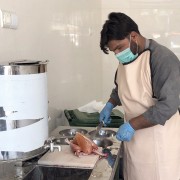
In Afghanistan, people buy fresh poultry meat directly from butchers. One can easily spot a traditional butcher shop in the streets of Kabul with clucking chickens kept in cages at the front. Customers prefer clean shops to avoid contaminated food, but it is a challenge to find a clean butcher shop, even in Kabul. Butchers rarely pay attention to hygiene, putting consumers’ health at risk - and thus losing customers and income. Often without access to clean water in their shops, butchers clean their hands and knives in buckets full of chicken feathers.
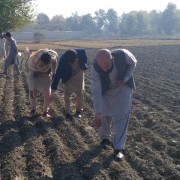
Gul Ali, a 45-year old farmer and father of six children from Kama district in Nangarhar province in Afghanistan, used to struggle to meet his and his family’s daily needs. Using only traditional agricultural techniques, Gul Ali was barely able to generate enough income to take care of his family. This was true of many of the residents of the Kama district. About 80% of Kama district’s residents’ income is from agriculture and livestock activities, many of which are based on traditional, rather than modern approaches.
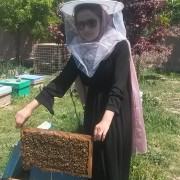
Coming from a farming background, Najla Dawlati was aware of the huge opportunities to make a living through bee-generated products like wax and honey. Najla was able to put this knowledge to work with help from a USAID women’s leadership development program. Jawana is a three-month training program that instills young Afghan women with self-confidence, decision-making, and leadership skills. Through its Alumni Network, Jawana also introduces graduates to other women with similar business aspirations.
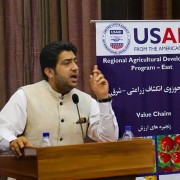
Access to finance is a major challenge for agribusinesses and farmers in Afghanistan. The financial institutions in the country consider the sector risky due to the volatile security environment, lack of acceptable collateral, and lack of businesses’ capital. In addition, the level of financial literacy among businesses in Afghanistan is very low. Lack of information, limited loan offers, and heavy lending requirements have largely prevented agribusinesses from borrowing from financial institutions.
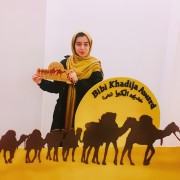
Behnaz Saljuqi, a young woman from Herat, always knew that she wanted to own a wedding catering business. She believed that there would be ample business opportunities since weddings are huge social events in Afghan culture and sometimes take years to arrange.

Comment
Make a general inquiry or suggest an improvement.